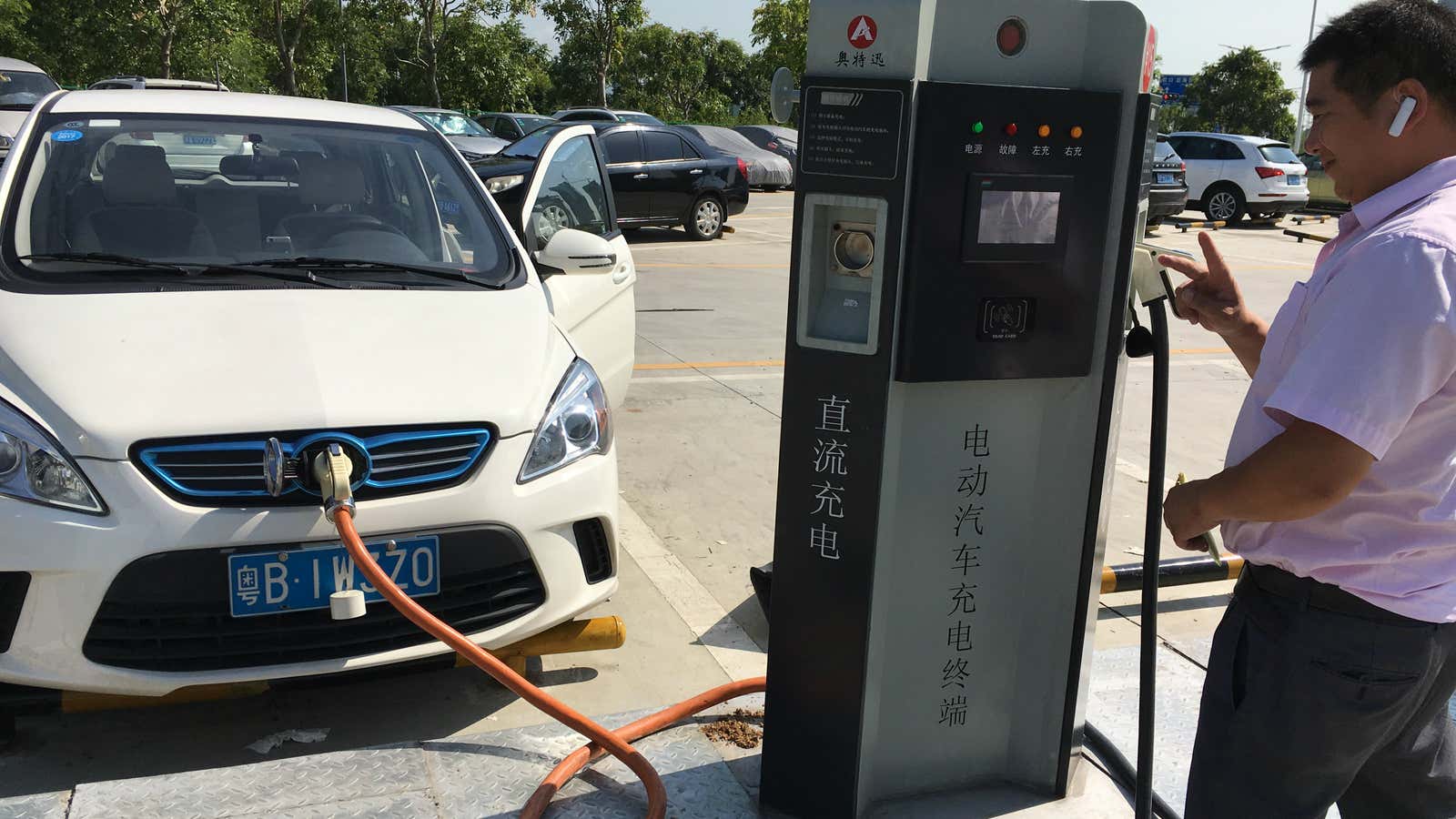China’s Uber competitor Didi Chuxing is getting in on the nation’s electric-vehicle boom.
The company announced today it will begin building a network of EV charging stations across the country, highlighting the seriousness with which both China’s government and private enterprise are approaching the emerging industry.
According to Didi, the stations will be accessible both for Didi drivers and others. It will build the stations through a joint-venture with Beijng-based Global Energy Interconnection Development and Cooperation Organization (GEIDCO). The venture will be known as Global New Energy Vehicle Service. A feature in Didi’s app for drivers will display which charging stations are nearby. The company did not lay out a timeline for the stations’ deployment, or specify how many it intended to build.
“The future of transport is new energy vehicles, and ridesharing will be a key link in promoting new energy on the road,” said Didi CEO Cheng Wei in a statement today at an energy summit in Beijing co-sponsored by the United Nations and GEIDCO.
China already leads the world in EV charging stations. As of 2016, there were about 150,000 stations across the country, amounting to about one per every seven electric cars (link in Chinese), according to China’s National Energy Administration. It expects the number of charging stations to surpass 1 million by year’s end. The US, by comparison, has about 16,000 public vehicle charging stations, with 43,000 connectors.
China also leads the world when it comes to EV purchases. According to the International Energy Agency, 40% of the EVs sold in 2016 went to China, amounting to twice the number sold in the US.
The country has seen a surge of EV buying thanks in part to government subsidies and incentives, both for buyers and manufacturers. The city of Shenzhen, for example, picked cars from EV maker BYD to fill its taxi and bus fleets.
Didi says it now has over 260,000 EVs in its network of 21 million drivers.
